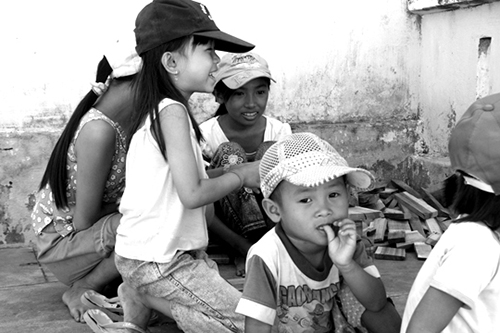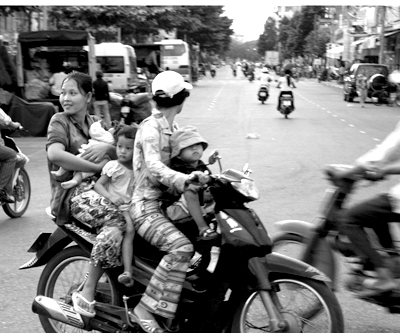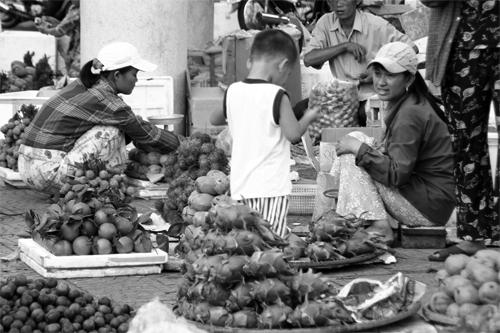By P.E.A.C.E. member, Irene Lipshin
Vietnam — a legacy of war
Vietnam still carries the legacy of war, more than thirty years after the last U.S. soldier returned to American soil. When the war in Iraq ends, it will not be over. This is the way of war. It never ends.
I recently returned from a three-week Vietnam War Era Literature study abroad course. My experience of walking on the soil and meeting the people of Vietnam has confirmed my belief that war is never the way to find peace. I met the heart of Vietnam. The children of the sixties and seventies have grown up in a country that has suffered generations of devastation and loss. Their own children live in the shadow of an unseen war.
Unexpectedly, many Vietnamese people welcome Americans, telling us “We forgive you.”
In Vietnam, the contrast between rich and poor is everywhere, if you are observant. While beautiful homes and buildings are part of the scenery, poverty in the countryside, along many rivers, in back alleys and off the bus tour track is evident. Not only adults, but also children, aggressively peddle goods to travelers on the streets in large and small cities, towns and tourist sites. Some know just enough English to greet you and hawk their wares or beg for money. Children may accompany their parents to markets to sell crops, go to work with mom or dad in small factories when school is out or, in rural settings, work alongside a parent in the fields, some behind water buffalo.
While many Vietnamese enjoy the growing economy, others, especially in rural regions, count among the country’s poorest citizens. They may earn insufficient wages, struggle to feed, clothe and send their children to school and may deal with the effects of Agent Orange/Dioxin or war-related injuries. They ride bicycles or if lucky, are among the 1.8 million Vietnamese who travel on popular motorcycles. They and their passengers, especially children, may suffer health problems from air pollution and sun exposure.
A unique brand of capitalism
Vietnam’s unique brand of capitalism works around the communist government. Economic recovery includes reconstruction of bridges, villages and cities damaged or destroyed during the “American War.” Development of beach resorts by multi-national corporations speeds up the rebuilding of Vietnam’s economy. In this lush and picturesque country, tourism is vital to the economic upturn. Forests and fields are in the process of renewal through joint ventures with other countries including the United States, who sprayed Agent Orange on those same locations during the war. Yet, environmental contamination still threatens some areas and people because cleanup is slow and expensive.
Education is compulsory, but still out of reach for disadvantaged children
School is compulsory and the literacy rate is 92%, according to UNESCO Institute for Statistics. Most children attend school; some families need the help of humanitarian organizations who provide funding for essentials or training. In Hanoi, we visited KOTO (Know one, Teach One), a not-for-profit restaurant and training program, founded by an Australian-Vietnamese man as a charity that helps children leave street life to learn English, practical skills and eventually train for a career in food service through their hospitality program. KOTO also financially assists disadvantaged children so they can attend school.
While Vietnam is still recovering from the ravages of war, its long-range plans include reducing poverty among its citizens and continuing to renew and rebuild, all goals that will make this country a better and safer place for its children.




